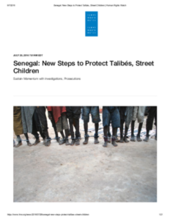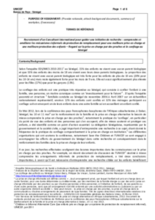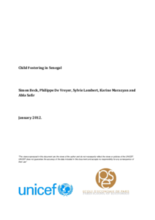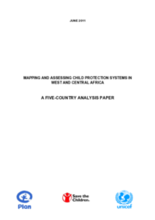Displaying 21 - 30 of 37
Tens of thousands of children in Senegal are being forced to beg for food by abusive teachers in Qur'anic schools just one year after government crackdown on the issue.
The mission of the Member Support Advisor is to be the daily operational link between Promoting & Supporting Associations (PSAs), the General Secretariat (GSC) and other Member Associations (MAs).
Il faut continuer sur cette voie en menant des enquêtes et en engageant des poursuites en justice
In this report from Human Rights Watch, authorities are making strides in protecting street children from the harsh punishment many of them face in Quranic schools in Senegal.
The 2016 Trafficking in Persons (TIP) report, issued by the U.S. State Department to grade countries on their anti-slavery efforts, has identified the forced begging of children by their teachers as Senegal’s primary trafficking problem, according to the article.
In March 2013, a fire erupted in the Dakar neighborhood of Medina and a Quranic boarding school, housed in a makeshift shack caught on fire.
Termes de Références pour le recrutement d’un consultant international pour guider une initiative de recherche : comprendre et améliorer les mécanismes informels de protection de remplacement pour une meilleure prise en charge et une meilleure protection des enfants – Regard sur la prise en charge par des proches et le confiage au Sénégal.
Using data from a nationally representative household survey conducted in Senegal in 2006-2007, the survey Pauvreté et Structure Familiale, this paper studies the long-term outcomes for adults who have been fostered in their childhood, including children fostered to Koranic schools. It focuses its analysis on education, first employment and current employment as well as on marriage. Findings show that the long-term impacts of fostering are heterogeneous and depend on various reasons including the locations of fostering, host parents, fostering age, and gender.
Using a nationally representative household survey conducted in 2006-2007 in Senegal, this study sheds light on the common practice of fostering (confiage) by examining the characteristics of households and individuals involved in fostering, the motivation for fostering and its impact on host households, sending households, and the foster child, with a focus on education, employment and marriage outcomes.





